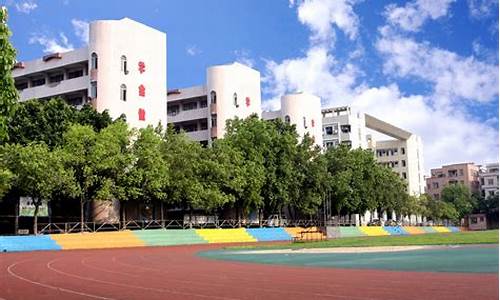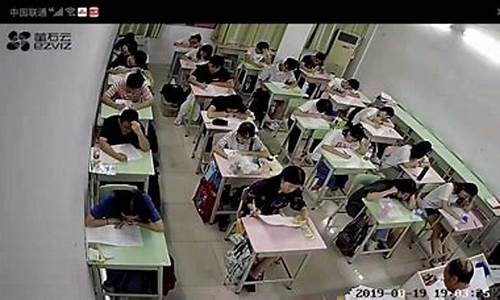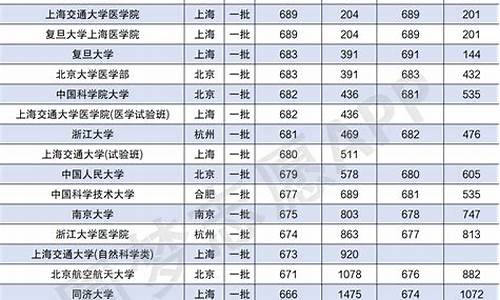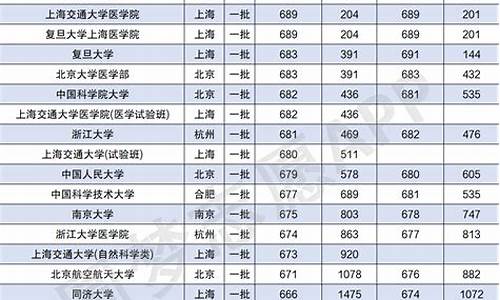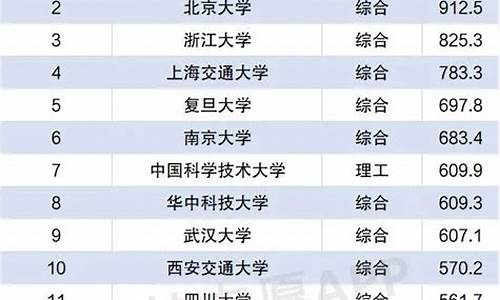2015英语高考听力音频,2015高考英语听力答案
1.高考英语听力该怎样调整自己的心态?如何得到高分?
2.求福建省历年高考英语听力音频和原文
3.2012高考3月英语听力答案(刚考完的)
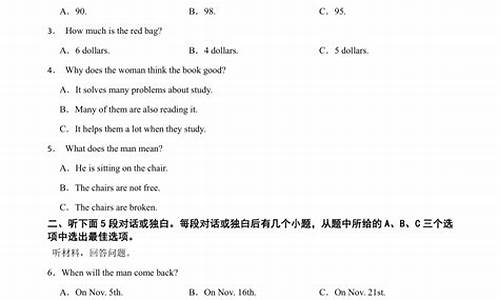
第一招:相关保留原则
当选项中有两项表达意思相近时,那么正确答案必在这两项之中!这时只需稍微听一听对话,即可知答案,如果出现了双重相关,便可直接确认正确选项,只需听完对话加之认证一下即可!
典型例题:
4. A) Visiting the Browning.
B) Writing a postcard.
C) Looking for a postcard.
D) Filling in a form.
例题分析:B、C两项均含有 a poscard ,B、D两项均含有写...之意,即B、C和B、D构成双重相关,即可得出B为正确选项!
本题听力原文:
4. M: What\'s the matter? You\'ve been sitting there for ages, just staring into space.
W: I told the Browning I\'d send them a postcard. Now I don\'t know what to say.
Q: What\'s the woman doing?
第二招:异项保留原则
当选项中出现有意思明显相反的两项时,那么正确答案必在此二项中出现!如果出现双重异项,那么即可判断出正确答案,异项保留原则在六级考试听力短对话中应用广泛!
典型例题:
6. A) She can’t finish her assignment, either.
B) She can’t afford a computer right now.
C) The man can use her computer.
D) The man should buy a computer right away.
例题分析:A、B异项,A项的意思是她现在有电脑,B项的意思则是她现在没有电脑。B、D异项,B是说女方无电脑,而D是说男方无电脑,男女也是一种反意关系。所以根据双重异项原则可确定正确答案为B项!
本题听力原文:
6. M: I\'m frustrated. We\'re supposed to do our assignment on the computer, but I he difficulty getting access to the computers in the library.
W: I understand the way you feel. I\'m looking forward to the day when I can afford to get my own.
Q: What does the woman mean?
第三招:女士保留原则
做题做多了,我们应该了解西方人的思维方式,当对话中出现女士的建议和要求时,我们一定要注意,这时女士说出来的话很可能就是正确选项的异意!因为女士经常以女神的形象出面,她们代表的是美好、正面、阳光的信息!
典型例题:
9. A) The man should stick to what he’s doing.
B) The man should take up a new hobby.
C) The man should stop playing tennis.
D) The man should find the cause for his failure.
例题分析:通过选项我们可以分析出男人做一些事情遇到了困难,这时一位女人出来安慰男人,根据女神原则可知女人一定会让男人坚持把这件事情做下去,而不要放弃,这样的题型太多了,所以可呈现出一定的规律性!
本题听力原文:
9. M: I think I\'m going to give up playing tennis. I lost again today.
W: Just because you lost? It that the reason to quit?
Q: What does the woman imply?
第四招:概括、抽象保留原则
当选项中出现比较概括、抽象的句子时,这时我们就要把表述事实的、具体的句子划掉,而去选择表概、抽象、比较性的句子!
高考英语听力该怎样调整自己的心态?如何得到高分?
高考英语听力训练材料,见听力课堂高考英语听力专题,该高考英语听力训练材料可,在线同时做听力并检查自己学习的效果,现将每个听力训练材料的链接附后,打开链接就可在线进行听力训练
1.高考英语听力练习材料 01
://.tingclass.net/show-8578-246065-1.html
2.高考英语听力练习材料 02
://.tingclass.net/show-8578-246066-1.html
3.高考英语听力练习材料 03
://.tingclass.net/show-8578-246286-1.html
4.高考英语听力练习材料 04
://.tingclass.net/show-8578-246287-1.html
5.高考英语听力练习材料 05
://.tingclass.net/show-8578-246288-1.html
6.高考英语听力练习材料 06
://.tingclass.net/show-8578-246290-1.html
7.高考英语听力练习材料 07
://.tingclass.net/show-8578-246292-1.html
8.高考英语听力练习材料 08
://.tingclass.net/show-8578-246294-1.html
9.高考英语听力练习材料 09
://.tingclass.net/show-8578-246295-1.html
10.高考英语听力练习材料 10
://.tingclass.net/show-8578-246298-1.html
求福建省历年高考英语听力音频和原文
高考英语听力填空题是2005年新诞生的一种听力理解题型。这一新题型给不少考生带来了些许畏难情绪。下面笔者通过扫描2006高考英语听力填空新题来和备战2007高考考生谈谈听力填空题的答题要领技巧。
例1. (重庆卷)第三节(共3小题;每小题1.5 分,满分4.5分)
请听下面一段独白, 用所听到的独白中的词或数填空, 每空限填一个词或一个数。填入的内容要在答题卡相应的位置上。在听本段独白前, 你将有时间阅读各小题, 每小题5秒钟;听完后,各小题将给出5秒钟作答时间。本段独白读两遍。请听第10段材料, 回答题18至20题。
答案18. science 19. 178220. French
例2.(湖南卷)第三节(共3小题;每小题1.5分,满分4.5分)
听下面一段材料,将第18至第20三个小题的信息补充完整。每小题不超过三个单词。听材料前,你将有时间阅各个小题,每小题5秒钟,听完后,各小题将给出15秒钟的作答时间。本段材料读两遍。
答案18. new hands 19. writing and typing 20. fun
通过扫描并分析以上2006听力填空新题,不难发现它们都是对具体事实和具体信息的考查。它要求考生在听清、听懂信息的同时,还要就所听到的一些具体信息,如:时间、地点、人物、年代、价钱、数量、目的、原因、结果等进行简单的处理,有的甚至需要考生进行简单快速的运算。
因此,考生要想顺利答题得到高分,必须掌握高考听力填空题的答题要领和技巧:
1.注重心态的调整,培养良好的心理素质。 听力测试要求考生具备良好的心理素质。 由于听力测试的不可重复性和即时性,录音结束后无法再现听力信息,因此,考生务必在当时听录音、思考并做题。然而,很多考生考试时总是紧张、局促不安,难以平静下来。所以,考生进入考场后,必须要调整好自己的心态,可以倚桌闭目稍作休息,或作数次深呼吸,或远眺、近观风景,分散注意力,缓解紧张情绪,以便全身心进入角色。同时,细听试音内容,听好了试音对自己调整心态、增强信心大有好处。此外,在解题过程中,如果某一地方没听清楚,不必紧张、心慌,因为这很正常。这时,考生不应对此纠缠不休,而应立即放弃,转而细听下面的录音,否则可能又失掉一个得分的机会。总之,轻松自信、镇定自若的良好心态是听力考试制胜的重要法宝。
2.预读十分重要。
听录音前,目的必须非常明确,做题的任务就是把空缺的空格听准、写对。预读很重要,大概理解一下题目所提供的表格或段落的含义。
3.听第一遍录音,头脑中想一遍题目所提供的表格或段落,尤其是需要填空的地方,对录音信息产生一个整体的概念。要求能够对即将要听的录音原文提前有个意思上的领会。边听边看试卷,通过上下文,弄清空缺部分该填何种信息,比如是who, where, when, what, why, how中的哪一种。
另外,在弄清的基础上,还要能够快速地写出来。先写词头、后完成全部拼写的做法可能对某些考生是有效的。另外,在听第一遍录音时,在不影响听全文的基础上可以边听边写出空中的第一词、后两个词,在听第二遍录音时补齐全部,这样会节约时间。这是不少考生得心应手的经验。 这种做法不妨在平日练习中试一试以养成习惯。
4.抓主题句。
短文或独白的主题句往往出现在开头或结尾,有时也出现在中间。主题句是一篇听力材料的中心思想,文章中的其他内容都是用来说明和发展这个主题句的。如果在听录音前我们就能从问题和选项中预测到该题测试点是主旨要义、标题、中心思想或作者观点,那么在听录音时抓住主题句显得尤为必要。
5.重理解、抓关键、巧记录。
高考听力填空题的解题关键是考生能否准确地捕捉到听力内容中所提供的信息核心词(组),或称关键词(组)。所以,考生解题的重点应该放在问题所在的“考点”上,而不能将思路停留在个别次要的语句上。同时,边听边在试卷或稿纸上快速巧妙地记录提到的what, who, when, where, which,why,以及数字等关键词。
6.复听时侧重听难点和重点。
这一节录音会播放两遍。那么,考生听第二遍时,在进一步理解全文、把握重要细节的基础上,要特别检查一下自己前一次有没有未听清楚的地方,应特别检查一下前一次有没有误听或漏听的重要信息,据此以保证答题的准确率。
7.语法观念要强。
①要辨别所填的是短语还是单个词语。
不论是短语还是单个词语,要特别注意词法、句法等结构问题和词组及固定搭配用法。
②大小写问题。
某些词或短语位于句首要大写,专有名词也要大写。专有名词包括人名、地名、单位、机构、组织名称等。如果在听录音时辨别不出专有名词,那么不要用大写,尤其是这些名词处在句中或句末时。避免犯这个错误要注意两点:一、在听第一遍录音时,注意试题上的给定信息,因为空中的信息,可能在试题里出现;二、根据题目所提供的表格或段落的上下文以及所听原文的上下文进行判断,特别要注意首尾句所给的信息,因为有些专有名词很可能出现在首尾旬中。
8.声音的问题。
同音词、近音词的辨别:在英语中有些同音异形、同音异义的词。在这类测试中只能听到录音,而见不到词形,所以很容易犯错误。避免这个问题的方法有二:其一,必须明确近音词的异形和异义;其二,先根据上下文弄清词义,然后根据词义写正确的单词。
弱读具有很强的欺骗性,一定要小心,要弄清某些词是不是弱读,如果是,就要正确地写出其缩写形式,例如:I’ll, you’ll, he’11, she’ll, they’ll, they’d, they’ve, they’re, I’m。
2012高考3月英语听力答案(刚考完的)
2014年福建省高考英语听力原文
Text 1
W: Excuse me. This is the address. How do I find it?
M: Right. You’ll need a street map. Here’s one, and I’ll show you where it is.
Text 2
W: Oh my! My car broke down, and I he to meet my aunt at the railway station before noon.
M: You’re lucky. I can drop you off on my way.
Text 3
W: Did you hear that Mr. Peterson is coming next week, Gordon?
M: Yes, so I called all the department heads to my office this morning. We need to give him reports on our program.
Text 4
W: I hope you like the book I lent you. I wasn’t sure if you’d be interested.
M: I had the same dou at first. But once I started, I simply couldn’t put it down.
Text 5
W: What is going on? It’s May, and we still he to wear warm clothes.
M: Well, there’s some good news on the radio. You probably can wear shorts tomorrow.
Text 6
W: Harry, let’s play some ping-pong today.
M: I’d love to play a set or two, but my right arm hurts. I’ve decided to stop playing ping-pong until it feels better.
W: Well, how about going skating?
M: I’d like to, but my knee hurts, too.
W: Harry, stop making excuses! You’re just lazy.
M: No, I’m not! You know, there’s a basketball match on TV today. Let’s just stay home and watch it.
W: OK. You stay, and I’ll play with Helen.
Text 7
W: What do you want to do tonight?
M: How about going to the cinema? I should be home from work at 5:45. Then we can go out and eat before we see a film.
W: What do you want to see?
M: There’s a good art film at the Green House Cinema.
W: Let’s see…it starts at 6:15. I don’t think we can get there in time to see the beginning. How about the action film at the New State Cinema? It starts at 6:50. Perhaps the 7:00 one at the UME Cinema is even better. It stars Jackie Chan.
M: OK, that’s fine. I like him, too.
Text 8
M: Hey, Lucy. Do you he some time to talk about next week’s trip with me?
W: Sure, De.
M: OK. So, we’re leing on Monday from Hartsfield International Airport, and returning on Friday. Do we take ourselves to the airport? Maybe we need to book a taxi, or just go by bus.
W: No, we don’t he to. The company car will pick us up and take us there.
M: Oh, that’s good. When?
W: Our flight lees at 11:00 a.m., so they should pick us up between 8:00 and 9:00 a.m. Besides, the company pays for our trip, including hotel and food.
M: How much will that be?
W: Well, New York is a pretty expensive city. So, each of us will get $200 a day.
M: Oh, OK. Thanks for telling me that.
W: You’re welcome.
Text 9
W: Please sit down. Let’s see…you’re Mr. Smith. Is that correct?
M: Yes. John Smith.
W: And you’re interested in this job?
M: Yes, I am. I’ll graduate from college the coming June. My major is Chinese.
W: I see. He you ever done any work in this field?
M: Yes, I used to be a tour guide for Chinese trellers.
W: Good. Now, how much money do you expect to he for a year?
M: From what I’ve read, it seems that a starting pay would be around $12,000 a year.
W: Here, you would start at $10,500 for the first year…a kind of training period. Then you would go to $15,000.
M: That sounds fair enough. What do you think are the chances for me to get a job here?
W: Well, I’m talking to three people today and four tomorrow. We’ll be hiring two people. You’ll hear from us sometime next month. Good luck! And thanks for coming in today.
Text 10
M: Well, I’d love to share with you my personal opinions on city life and life in small towns. I grew up in a small town until I was 18 and then moved to a big city, so I he experienced the good and bad sides of both. I never thought that I would like living in a big city, but I was wrong. After ten years of living in one, I can’t imagine ever living in a small town again. Surely small towns and big cities both he some problems in terms of transport. In a small town, you he to own a car to make life comfortable. You can’t get around without one because there isn’t any kind of public transport. Big cities generally he hey traffic and expensive parking, but there you he a choice of taking public transport, which is cheaper than driving. So, if you don’t he a car, you’d better live in the city. I also love the exciting life in big cities. I can always enjoy a lot of films, concerts, and other wonderful shows. However, these things are not common in small towns. The final thing I like about large cities is that you can meet different kinds of people. However, you seldom find such a variety of people in a smaller town. I think that living in an area where everyone was just like me would quickly become dull. Of course, safety should be considered, and that’s one area where small towns are better than big cities. Still, I would rather be a bit more careful and live in a large city than to feel safe but dull.
第一节(共5小题,每小题1.5分,满分7.5分)
听下面5段对话。每段对话后有一个小题,从题中所给的A、B、C三个选项中选出最佳选项,并标在试卷的相应位置。听完每段对话后,你都有10秒种的时间来回答有关小题和阅读下一小题,每段对话仅读一遍。
例:How much is the shirt?
A. £19.15 B. £9.18 C. £9.15
答案是C。
1.What does the woman want to do?
A. Find a place. B. Buy a map. C. Get an address.
2.What does the man do for the woman?
A. Repair her car B. Give her a ride C. Pick up her aunt.
3.Who might Mr. Peterson be?
A. A new professor B. A department head C. A company director.
4. What does the man think of the book?
A. Quite difficult. B. Very interesting. C. Too simple.
5. What are the speakers talking about?
A. Weather B. Clothes C. News.
第二节(共15小题,每小题1.5分,满分22.5分)
听下面5段对话或独白,每段对话或独白后有几个小题,从题中所给的A、B、C三个选项中选出最佳选项,并标在试卷的相应位置。听每段对话或独白前,你将有时间阅读各个小题,每小题5秒钟;听完后,各小题给出5秒钟的作答时间。每段对话或独白读两遍。
听第6段材料,回答6、7小题。
6. Why is Harry unwilling to join the woman?
A. He has a pain in his knee.
B. He wants to watch TV.
C. he is too lazy.
7. What will the woman probably do next?
A. Stay at home.
B. Take Harry to hospital.
C. Do some exercise.
听第7段对话,回答8、9小题。
8. When will the man be home from work?
A. At 5:45 B. At 6:15 C. At 6:50
9. Where will the speakers go?
A. The Green House Cinema. B. The New State Cinema. C. The UME Cinema.
听第8段对话,回答第10至12题。
10. How will the speakers go to New York?
A. By air. B. By taxi. C. By bus.
11. Why are the speakers making the trip?
A. For business. B. For shopping. C. For holiday.
12. What is the probalbe relationship between the speakers?
A. Driver and passenger B. Husband and wife C. Fellow workers.
听第9段对话,回答第13至16题。
13. Where does this conversation probably take place?
A. In a restaurant. B. In an office. C. In a classroom.
14. What does John do now?
A. He’s a trainer. B. He’s a tour guide. C. He’s a college student.
15. How much can a new person earn for the first year?
A. $10,500. B. $12,000. C. $15,000.
16. How many people will the woman hire?
A. Four B. Three C. Two
听第10段材料,回答第17至20题。
17. How long has the speaker lived in a big city?
A. One year. B. Ten years. C. Eigh years
18. What is the speaker’s opinion on public transport?
A. It’s comfortable B. It’s time-sing C. It’s cheap.
19. What is good about living in a small town?
A. It’s safer. B. It’s healthier. C. It’s more convenient.
20. What kind of life does the speaker seem to like most?
A. Busy. B. Colourful. C. Quiet.
1.B clothing 2.C co-worker 3.A 打电话 4.B late in asking 5.C camera 6.B plane 7.A toothbrush 8.C law 9.A excited 10.B a week 11.A herself 12.B married 13.C friends 14.B lost 15.C performance 16.A follow man 17.C german 18.A radio 19.A bad traffic 20.B understanding
声明:本站所有文章资源内容,如无特殊说明或标注,均为采集网络资源。如若本站内容侵犯了原著者的合法权益,可联系本站删除。

